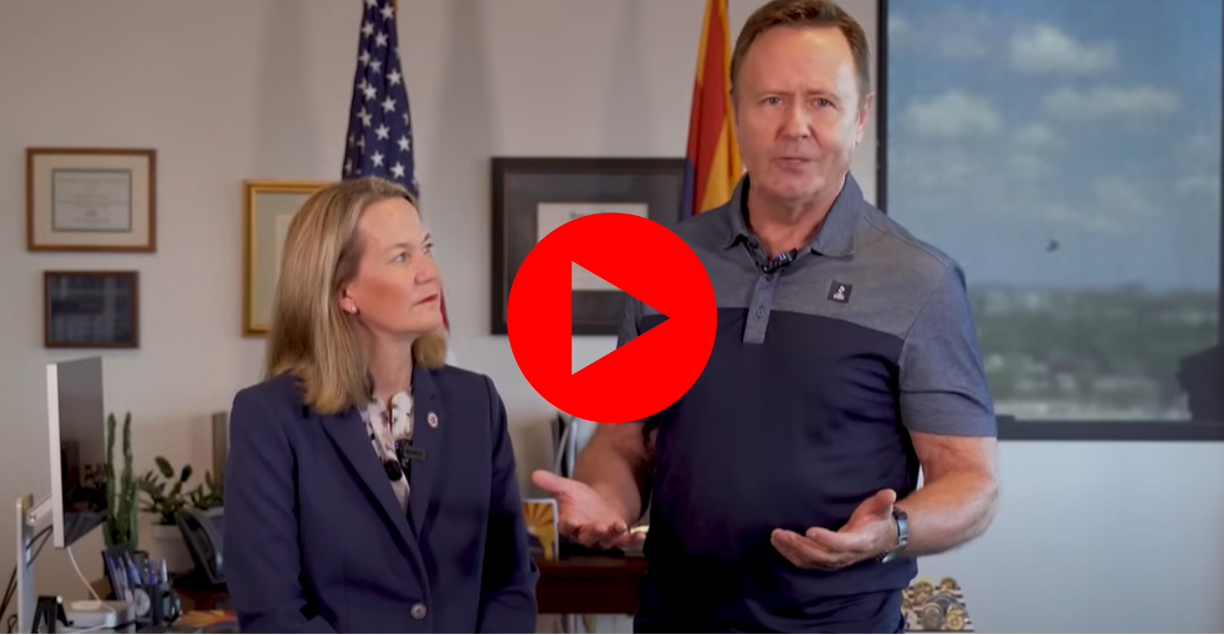Attorney General Mayes and BBB Alert Arizonans About Cryptocurrency Scams


PHOENIX – Today, Attorney General Kris Mayes and Better Business Bureau (BBB) published their fourth PSA as part of their educational campaign to warn Arizonans about how to spot and avoid common scams. This video focuses on scammers that try to take advantage of consumers with cryptocurrency.
VIDEO: AG Mayes and the Better Business Bureau Fight Crypto Scams
Cryptocurrency is a digital asset that uses encrypted networks to execute, verify, and record transactions without the involvement of a centralized authority, like a bank or government. Common types of crypto include Bitcoin, Ethereum, Binance and Ripple.
Scammers like to request crypto because it lacks many of the same protections that other payment forms provide and is hard to trace once the money is sent. Because there is so much money in this system, and it is relatively anonymous, there is widespread fraud and victims are losing millions.
Criminals employ a variety of scams involving cryptocurrency. Investment scams; Business, government or job impersonator scams; and blackmail scams are all being used to con consumers into sending large amount of money via cryptocurrency. Romance scammers have begun convincing their victims to invest in cryptocurrency via sophisticated fake apps, disappearing with the money when the victim attempts to withdraw proceeds. Ransomware scams also demand cryptocurrency as payment in many cases.
With the advent of Bitcoin ATMs, victims can now go to a convenient place near them to easily and quickly send Bitcoin. The Attorney General’s Office has partnered with local law enforcement agencies in Arizona to stop residents from losing millions of dollars at cryptocurrency machines in retail stores. By posting "STOP" signs on the crypto kiosks or ATMs, we can warn anyone who is going to use the machine or ATM in response to a scam contact to cease their purchase of Bitcoin or other types of cryptocurrency if they have been instructed to purchase it by someone they do not know and have never met in person. Attorney General Mayes also supported new legislation that increased protections against bitcoin ATM scams in Arizona.
The Attorney General and BBB provide the following tips to protect yourself from cryptocurrency scams:
- Verify Information: Before taking any actions, hang up, and independently verify the legitimacy of the caller by directly contacting the organization they claim to represent. Never use the contact details they provide — call whoever they claim to represent directly. Scammers can mask numbers making it appear that a legitimate company or organization is calling you.
- Be Skeptical: Always be skeptical of unsolicited calls, especially those asking for immediate action involving financial transactions. A government agency will never ask you to remove money from your accounts to send via bitcoin, wire transfer or gift cards.
- Only Scammers Demand Payment in Cryptocurrency: No legitimate business is going to demand you send cryptocurrency in advance – not to buy something, and not to protect your money. That’s always a scam.
- Secure Your Personal Information: Never share personal information like your social security number, bank account details, or passwords over the phone with unknown callers or give anyone real-time access to your computer. Never click on a link from an unexpected text, email, or social media message, even if it seems to come from a company you know.
- Consult Trusted Individuals: Always consult with a trusted family member or friend before making any substantial financial decisions, especially those involving digital currencies like bitcoin.
- Report Suspicious Activity: If something feels off, it probably is. Report the call to local law enforcement and file a complaint with the Arizona Attorney General’s Office.
The Consumer Protection and Advocacy Section at the AGO protects people – including Arizona’s most vulnerable residents – from fraudsters and scammers, and from all types of deceptive and harmful business practices by enforcing Arizona’s consumer protection laws and other state and federal law. If you believe you have been a victim of consumer fraud, you can file a consumer complaint by visiting the Attorney General’s website. If you need a complaint form sent to you, you can contact the Attorney General’s Office in Phoenix at (602) 542-5763, in Tucson at (520) 628-6648, or outside the Phoenix and Tucson metro areas at (800) 352-8431.
BBB helps consumers make informed buying decisions and is a go-to resource for trusted consumer information, consumer tips and scam alerts. Consumers can also report scams and fraud attempts through BBB's Scam Tracker, which helps identify scam tactics and trends.

